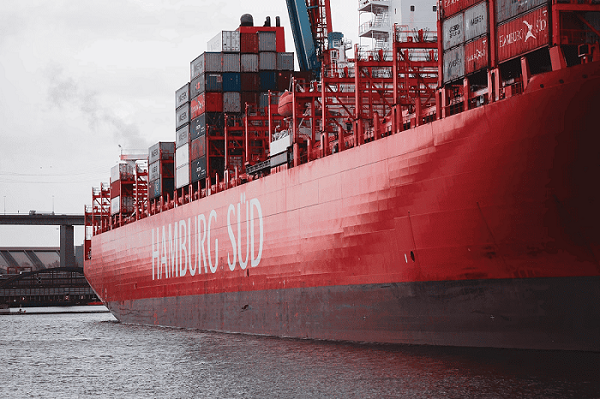by AKANI CHAUKE
JOHANNESBURG – INCREASING global trade tensions between the United States (US) and China coupled with growing shadow fleet have added to substantial challenges for the shipping industry.
According to a report presented by Allianz Safety and Shipping Review 2025, despite geopolitical headwinds, only 27 large ships were lost worldwide in 2024, down by more than 20%, the industry’s lowest-ever total.
Allianz Commercial Global Head of Marine Risk Consulting, Captain Rahul Khanna, nevertheless said progress was made on the traditional risks such as fires, shipping collisions, and groundings, which he said are the main causes of losses, but large claims potential concerns.
“The relevance of political risk and conflict as a potential cause of maritime loss is increasing with heightened geopolitical tensions. Total losses from traditional causes may have reduced over time, but we could be in a position where this positive trend is potentially offset by war and other political-related exposures. As an industry, we are in a better position with regards to traditional risks, but there is a renewed focus on geopolitical risks,” Khanna said.
He said the fast-changing geopolitical landscape was creating new risks and challenges for the shipping industry already juggling the energy transition and the legacy of the Covid-19 pandemic.
Khanna observed the industry faced increased volatility and a complex operating environment, which he said were marked by attacks against shipping, vessel detentions, sanctions, as well as the fall-out from incidents involving damage to critical sub-sea cables.
Furthermore, the ripple effects of increasing protectionism and tariffs threaten to remake supply chains and shake up established trade relations.
He noted 90% of international trade was transported across oceans remarking that developments were concerning citing the industry continued to see the potential for large claims from traditional risks such as fires, collisions and groundings, which are still the main drivers for total losses of large vessels.
Khanna, however, observed the shipping industry made significant improvements in maritime safety in recent years pointing to the 1990s period in which the global fleet was losing 200+ vessels a year.
He insisted this total figure had halved 10 years ago saying it has now come down to a record low of 27 as of the end of 2024 (from 35 in 2023).
Khanna claimed China has been the biggest target of the protectionist measures of the US administration with tariffs reaching 145%, before both countries agreed to reduce them for 90 days.
Developments have significantly impacted global maritime trade with approximately 18% of it subject to tariffs as of mid-April 2025, compared with 4% in early March, and dramatic declines in shipments reported in the immediate aftermath of the “Liberation Day” announcements.
While the future of US trade-focused policies remain uncertain, another phenomenon is posing an increasing challenge for the maritime and insurance industries: the shadow fleet.
Since the start of the war in Ukraine, the size of the shadow fleet has grown significantly. Today, around 17% of the world tanker fleet is thought to belong to the shadow fleet: estimates indicate there are close to 600 tankers trading Russian oil alone.
Shadow fleet vessels have been involved in tens of incidents around the world including fires, collisions and oil spills.
“Although recent sanctions are making it harder for these vessels to trade, the shadow fleet continues to pose a serious risk to maritime safety and the environment, as many are likely to be older vessels that are poorly maintained and inadequately insured. In case of an oil spill involving a shadow fleet tanker, cleanup costs could be as much as US$1.6bn,” says Justus Heinrich, Global Product Leader, Marine Hull, Allianz Commercial.
Fires and mis-declared cargo remain a top concern for large vessels
Large vessel fires are still a major concern for hull and cargo insurers. There were seven total losses reported across all vessel types during 2024, the same number as a year earlier.
The number of incidents overall was up year-on-year to a decade high of 250, again across all vessel types.
Around 30% of these fire incidents occurred on either container, cargo or roll-on roll-off vessels (ro-ros) (69).
More than 100 total losses of vessels have been caused by fires in the past decade. Efforts to mitigate these risks are underway, with regulatory changes and technological advancements aimed at addressing mis-declared cargo, a primary contributor to such fires.
This is critical as the electrification of the global economy poses further challenges given the growing number of lithium-ion batteries and battery energy storage systems being transported.
“To put this into perspective: there are over 100,000 ships (100GT+) in the global fleet. However, uncertainty and multiple risks persist. Cyber-attacks and GPS interferences are increasing. Ceasefires have raised hopes, but the Red Sea security threat and supply chain disruption will likely remain. Meanwhile, the green transition requires much work. The coming years will be decisive and will determine the path of the sector and global trade,” Khanna said.
Allianz Commercial is the center of expertise and global line of Allianz Group for insuring mid-sized businesses, large enterprises and specialist risks.
– CAJ News




